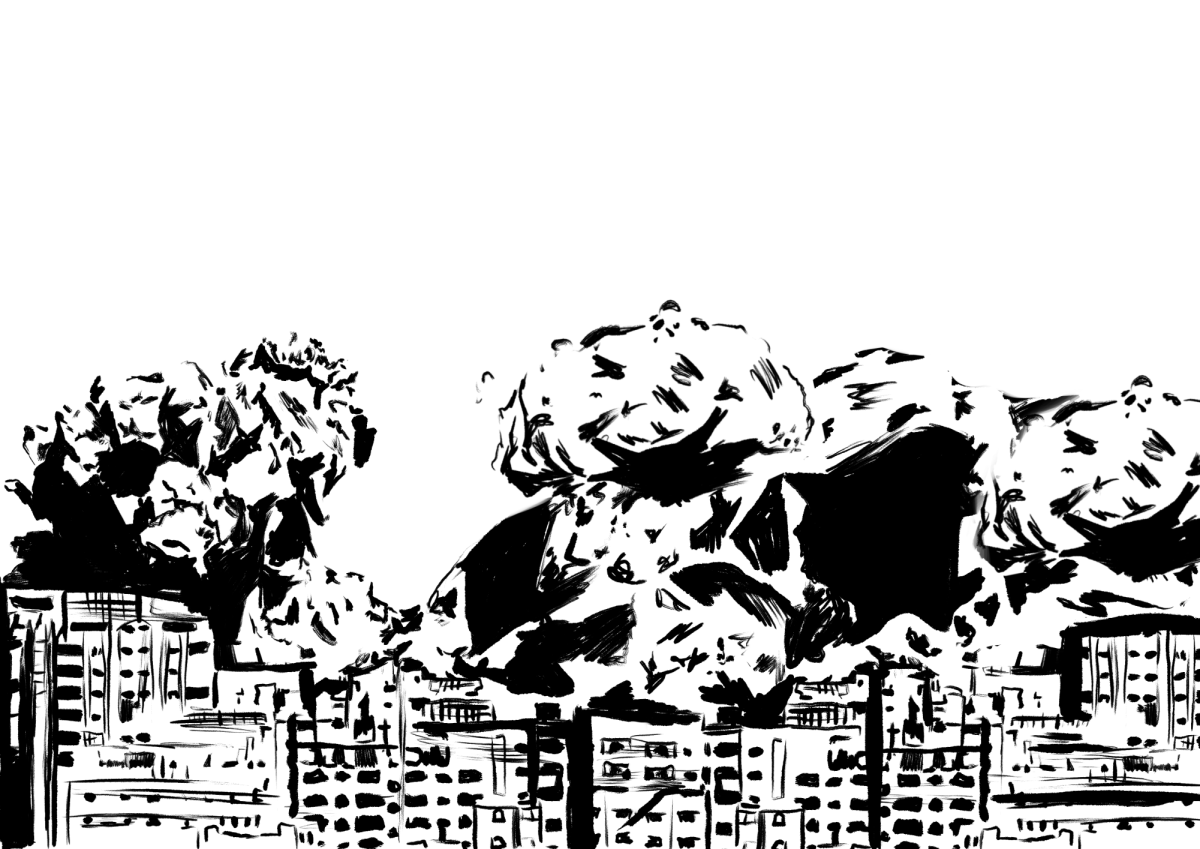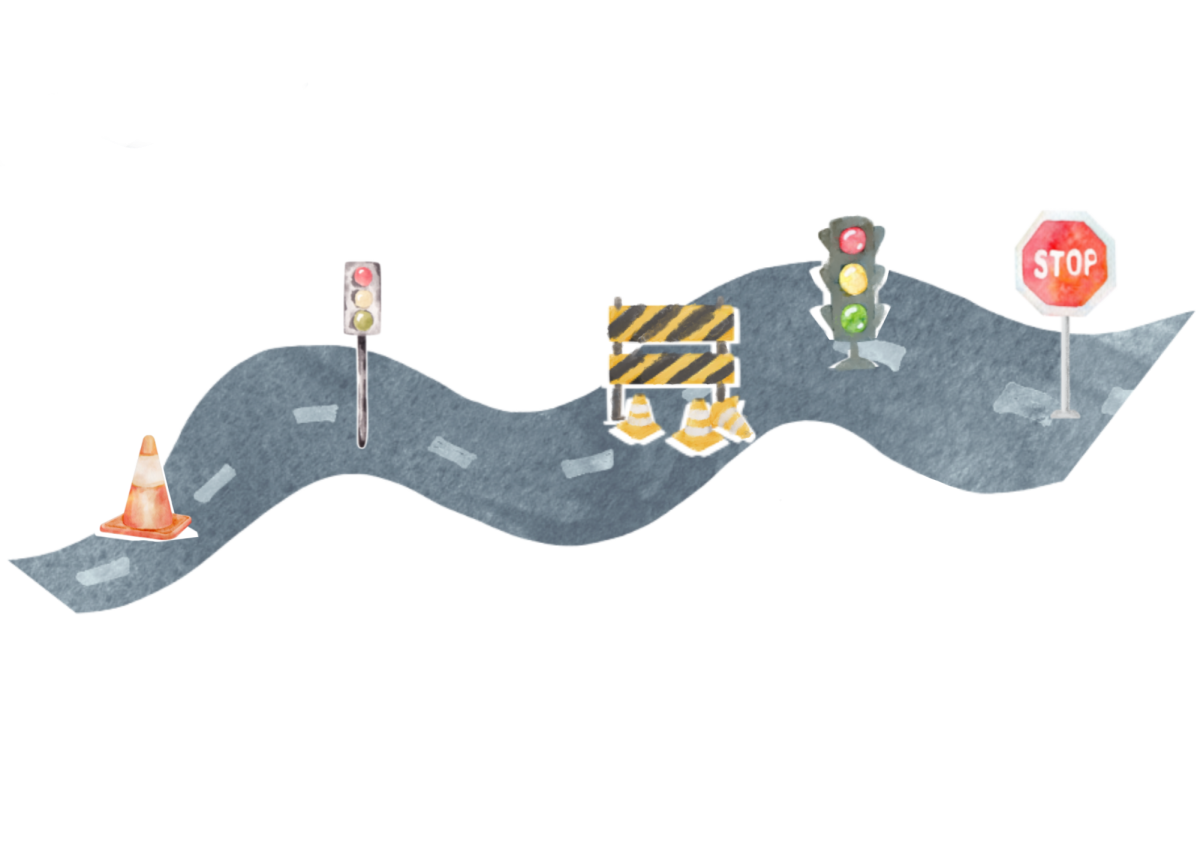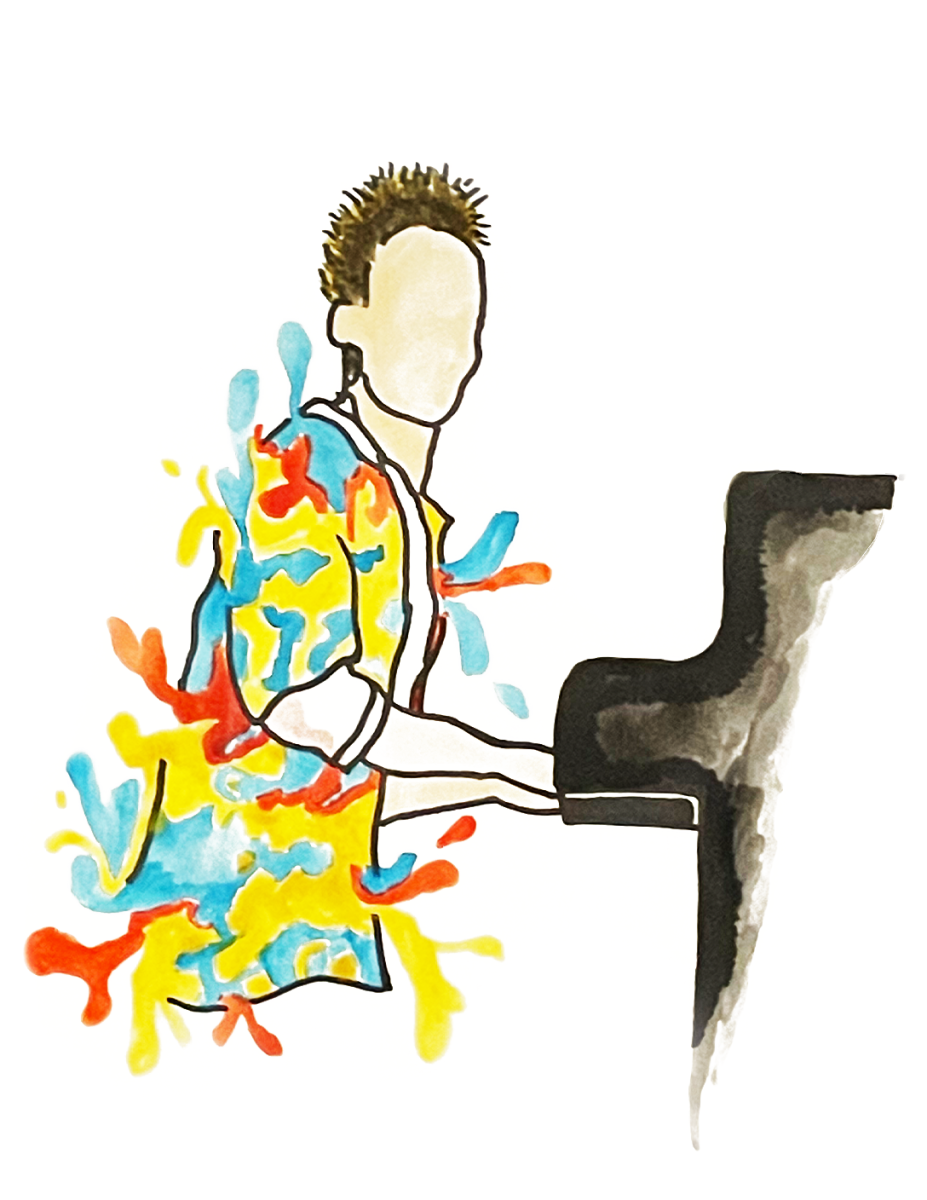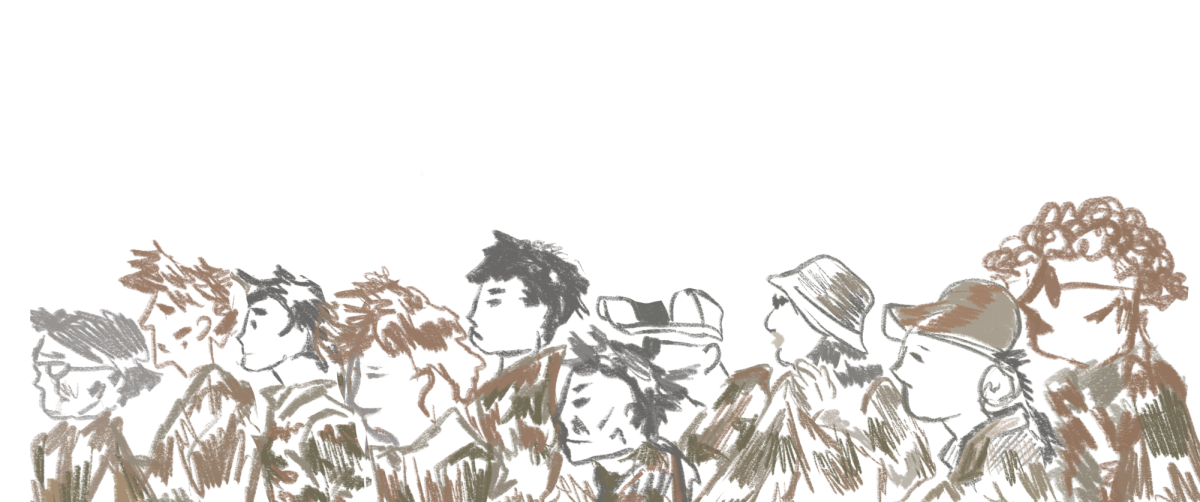Despite the immense sophistication and awareness of the horrors of war and the cost of a nuclear winter, international defense spending rose 19% in the past decade according to the Stockholm International Peace Research Institute.
The National Atlantic Treaty Organization, (NATO) asked member states to dedicate 2% of their gross domestic product, (GDP), to military spending, in response to the Russian invasion of Ukraine.
This militarization is alarming and has global impacts.
Students’ opinion vary on why this is happening and whether it means if this is the end of times, or whether more weaponry is a deterrence that is necessary for the security of a free state.
“More military spending would deter a war in the grand scheme of things.However it is situational, depending on what it is spent on,” sophomore Fernando Alejandre said.
What is certain is that members of NATO that have been long inactive or have been utilizing outdated equipment, such as Japan, Germany and Poland, and are now investing in their defense programs.
“Japan and Germany have not had a significant military presence since World War II due to being the chief Axis powers, which has led primarily to a lack of infrastructure and a fear of extremity,” senior Dylan Charney said.
Remilitarization is the process of increasing military spending in order to bolster a country’s defense capabilities.
Unfortunately, it has been extremely hard for Germany and Japan to do this because of the cultural shifts that occurred after World War II, but re-militarizing is not just a national debate; it creates tension between countries.
On June 2, Russia accused Germany of unbalancing Europe by doubling its military spending.
“Foreign fears of German militarization due to an aggressive history, despite years of alliance, still exist,” Dylan said.
Japan on the other hand is not just facing opposition from Russia, but also from China and North Korea.
“While foreign powers remember Japanese aggression, the Americanization of Japan after World War II and their proximity to China makes them a useful military presence [for NATO],” Dylan said.
Japan’s defense force has approximately 250,000 personnel to combat and defend against China’s growing military presence in the East China Sea, but it is also fundamentally unconstitutional.
“The disarmament clause in the Japanese constitution makes Japanese militarization difficult in the 21st century, as doing so violates that constitution. But, if the argument exists that constitutions should be amended, I believe it is applicable here,” Dylan said.
Japan’s culture and its constitution have changed, but exploiting loopholes is a slippery slope, as history tends to repeat itself.
“If you base present actions solely on past ones in a national setting, not many countries would be clean. If you based present U.S. actions on what we have done in our history, many would be afraid of us having a military,” said Social Science Chair Kevin Shertzer.
Unlike Japan and Germany, Poland is undergoing a modernization process in reaction to the Russian-Ukraine war as opposed to remilitarization; this means that they are purchasing modern weaponry and retiring their outdated equipment.
Since World War II, Poland’s military only had room to improve.
“Poland faced many issues during the joint Nazi-Soviet invasion in 1939. A two-front war is difficult to win and while Poland’s terrain is not inclined for defense, it is important to note the technological disparity between the Nazis, Soviets and Poles,” Dylan said. “Both Germany and Russia possessed numerous armored divisions of tanks and other armored vehicles, while Poland had only two armored divisions.”
Poland is determined not to repeat the past and is currently attempting to update its already significant tank force, ordering over 1,000 K2 tanks and hundreds of artillery systems and fighter jets from South Korea.
Germany, Japan, and Poland have all increased their military budgets in reaction to the threat in Russia, but why did this specific war ignite so much change?
“The Russia-Ukraine war caused a stir because it is happening in Europe right next to many NATO countries. NATO was created to stop Soviet Union expansion, and its European members feel threatened by a war so close to their borders,” sophomore Robie Polos said.
The Western conception of Russia as a superpower of Europe is dramatized throughout the media, portrayed closer to the might of the former Soviet Union, rather than the current reality of modern-day Russia.
“When you talk about the view of Russia and reality, a lot of our perspective comes from our own particular view of Russia based upon how our media covers them, the past, and much more,” Shertzer said.
Russia and Ukraine argue their individual narratives. Russia claims that its people support Putin’s dream of conquest, while Ukraine claims that Russian soldiers are unwilling to fight.
“Putin has been drafting Siberians in large quantities because there are a lot more minorities in Siberia who are poor and disconnected from the rest of the country,” Robie said. “The majority of Russians in the Western part of the country won’t feel the impact of the war as hard as poor farmers from the east whose families likely won’t go to Moscow and protest when someone’s son dies.”
Ukraine formed a unit made up of Siberian citizens who fled to Ukraine in hopes of fighting against Russian imperialism, which could be a sign that Putin’s disproportionate drafting of ethnic Siberians is bringing about unrest.
The Western world sees Russia, China and North Korea as the antagonizers who are threats to our democracy.
In response, the West is reacting in kind, boosting military spending.
It begs the question: does this trend of remilitarization and modernizing lead to war, or does it provide security through the power of deterrence?
If it is possible to use diplomacy to reach across the cultural divide, then is it not worth it to at least try?
We must explore every potential option and avenue because the stakes could not be higher.
Machines of War
Escalating global tensions calls for an increase in military spendings, fueling debate and shifting where countries lie on the geopolitical stage.
January 29, 2024
1
Donate to The Fourth Estate
$50
$500
Contributed
Our Goal
Your donation will support the student journalists of Laguna Blanca School. Your contribution will allow us to purchase equipment and cover our annual website hosting costs.
More to Discover
About the Contributors

Niccolo D'Agruma, Managing Editor, Feature Editor
Niccolo D'Agruma, a current Sophomore and Fourth Estate Co-News Editor, joined the publication in the fall of 2022. He has written about topics that he considers interesting and captivating throughout his time at the paper. He is interested in acting, engineering, creative writing, urban planning, current social and economic issues, and more inside and outside The Fourth Estate.

Dionne Peterson, Co-Editor-in-Chief, Art Director
Dionne Peterson is on her third-year of the staff at Laguna Blanca and is the Co Editor-in-Chief of the Fourth Estate. The topics that she is most passionate writing about is social injustice topics while also writing in the Arts and Culture section. She loves all types of art forms, which includes drawing, singing, and creative writing, and also plays on the Girls Varsity Golf team.
































